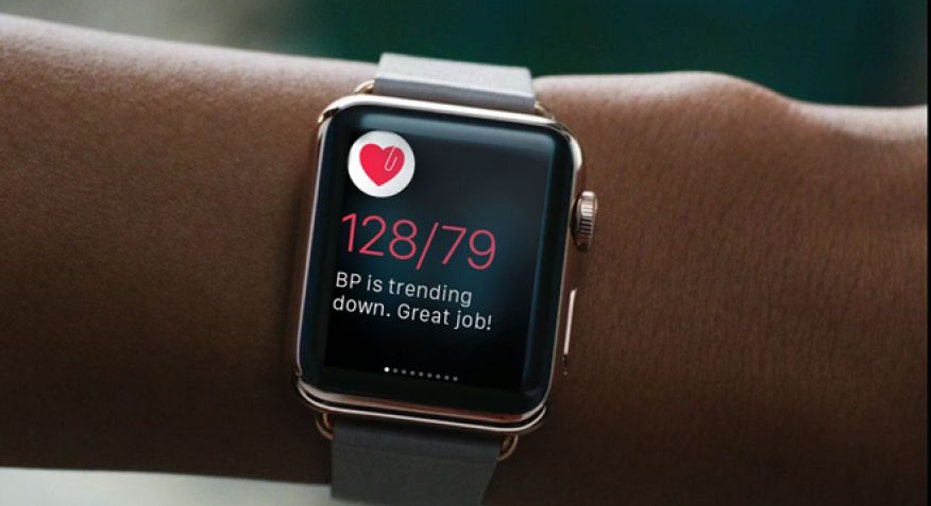Can an App Help Prevent Heart Attacks?

We’re all obsessed with our health, these days. The question is, does the health craze actually improve anyone’s health or just make us more neurotic about it? Nobody’s more cynical about that than me. There are two reasons for that.
First, the data is not promising. The more gadgets, apps, diets, clubs and healthy foods we have access to, the more overweight and out of shape we become. According to the CDC, 69 percent of adult American’s are overweight and half of those are obese. That’s staggering. And it gets worse every year.
Second, health is a function of behavior. All the technology, information and availability of healthy choices in the world will not cause anyone to take advantage of them. That’s a matter of human behavior. It’s a matter of choices individuals make every day of their lives. And our track record on that front has not been great, as of late.
It takes enormous personal strength and courage to make the right decisions. And it takes a lot of hard work and discipline to change habits and routines. So excuse me if I’m more than a little skeptical when I hear about devices and apps that are supposed to help us improve our health.
Well, here’s some news that, I have to admit, really surprised me.
Earlier this year, Tel Aviv and Silicon Valley-based startup Hello Heart launched a free iPhone, Apple Watch and Android phone app designed to help 100 million Americans suffering from heart disease, high blood pressure and other chronic illnesses more effectively manage their conditions.
The app integrates measurement and test results to help patients make sense of the data through personalized dashboards that actually explain what the numbers mean. The question is, does it really help them change their behavior? Asked another way, is there a significant measurable benefit to using the technology?
After five months and 50,000 downloads, Hello Heart analyzed the data from a random sample of 4,000 users who were actively measuring their blood pressure and, after at least six weeks using the app, one in four reduced their average weekly blood pressure by 10 points or more with an average drop of 24 points, according to the company.
For the one in three Americans who suffer from hypertension, a sustained reduction in blood pressure of that magnitude can substantially reduce their rates of heart attack, heart failure and stroke, according to a National Institutes of Health-funded study.
While those are early results they’re clearly promising. That got me wondering what might make this sort of technology so successful where other approaches have failed.
It all comes down to user engagement. Apparently, 70 percent of those using the app for at least a month developed a habit that continued for four more months and counting. Meanwhile, engagement among Apple Watch users was off the charts: 3.6 times more than those who tracked their blood pressure with their phones.
“We interviewed dozens of users who successfully lowered their blood pressure using Hello Heart and most said that, while they were motivated before, having been told by their doctors that they had to make a change, they were not able to until now,” said Hello Heart CEO Maayan Cohen, in an interview.
“In fact, that is really one of the key strengths of mobile therapeutics,” she said, “Unlike traditional behavioral medicine interventions, our app achieves superior engagement and sustained behavioral change without the need for constant face-to-face meetings with doctors and health coaches.”
Cohen went on to say that the results Hello Heart achieved so far are three times better than a systematic review of 49 studies of self-monitoring of blood pressure with doctor’s supervision.
Time will tell if this app and others like it will continue to show significant improvements in helping patients monitor and manage their conditions, but I can think of two qualitative reasons why they should.
First, it makes sense that direct and immediate feedback about what you’re doing right and what you’re doing wrong would make it easier to break down old habits and build new routines. That’s both logical and born out in a number of individual case stories on the company’s website.
Second, it’s comforting to feel even somewhat in control of a potentially mortal disease. When it comes to serious illness, uncertainty can be terrifying and debilitating. That goes for both pre and post diagnosis, including understanding what all the tests and lab results actually mean.
Knowledge is power, and, when you’re sick, you need all the power you can get.
For more information, visit HelloHeartApp.com.



















